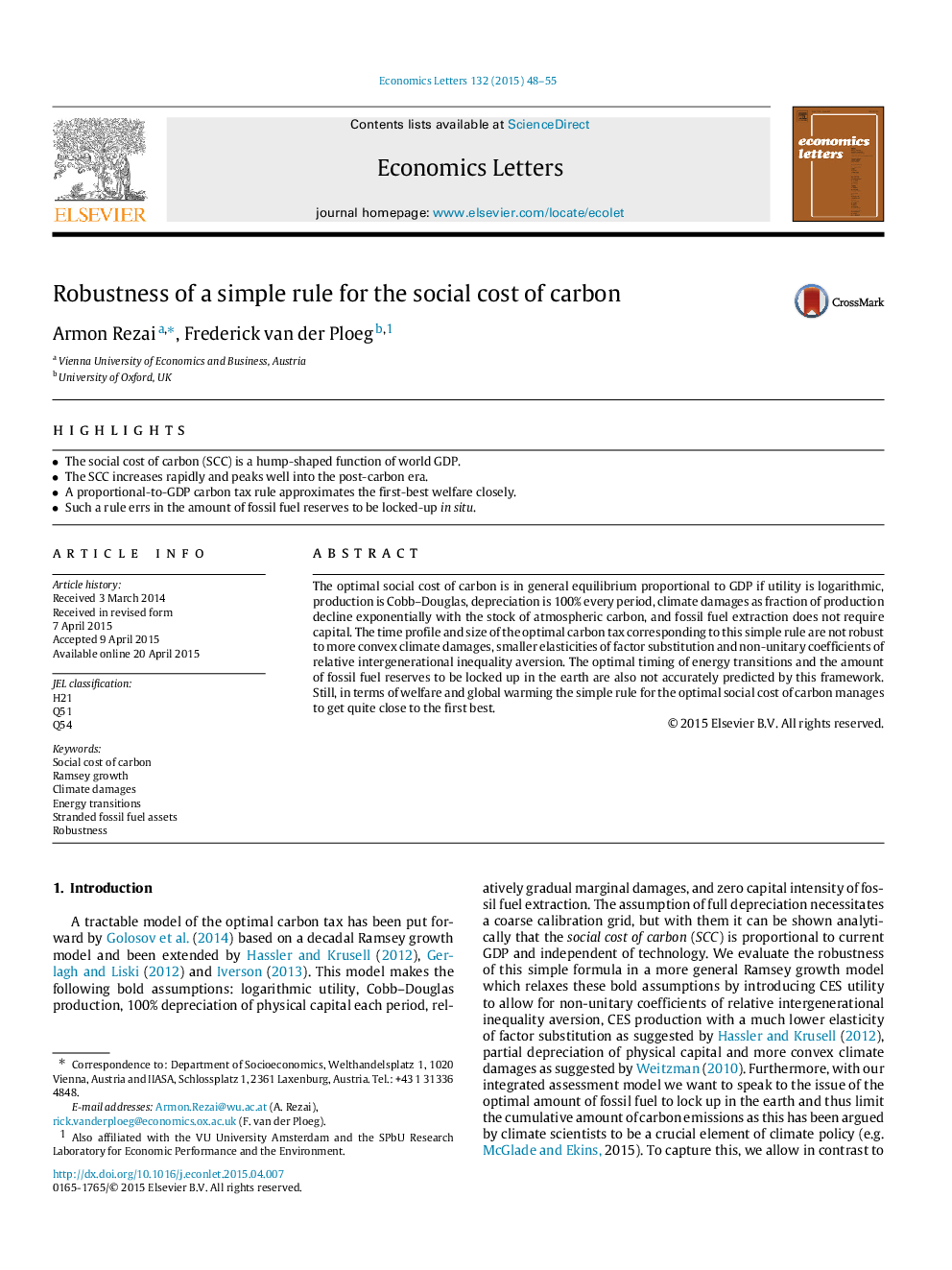| Article ID | Journal | Published Year | Pages | File Type |
|---|---|---|---|---|
| 5058490 | Economics Letters | 2015 | 8 Pages |
â¢The social cost of carbon (SCC) is a hump-shaped function of world GDP.â¢The SCC increases rapidly and peaks well into the post-carbon era.â¢A proportional-to-GDP carbon tax rule approximates the first-best welfare closely.â¢Such a rule errs in the amount of fossil fuel reserves to be locked-up in situ.
The optimal social cost of carbon is in general equilibrium proportional to GDP if utility is logarithmic, production is Cobb-Douglas, depreciation is 100% every period, climate damages as fraction of production decline exponentially with the stock of atmospheric carbon, and fossil fuel extraction does not require capital. The time profile and size of the optimal carbon tax corresponding to this simple rule are not robust to more convex climate damages, smaller elasticities of factor substitution and non-unitary coefficients of relative intergenerational inequality aversion. The optimal timing of energy transitions and the amount of fossil fuel reserves to be locked up in the earth are also not accurately predicted by this framework. Still, in terms of welfare and global warming the simple rule for the optimal social cost of carbon manages to get quite close to the first best.
